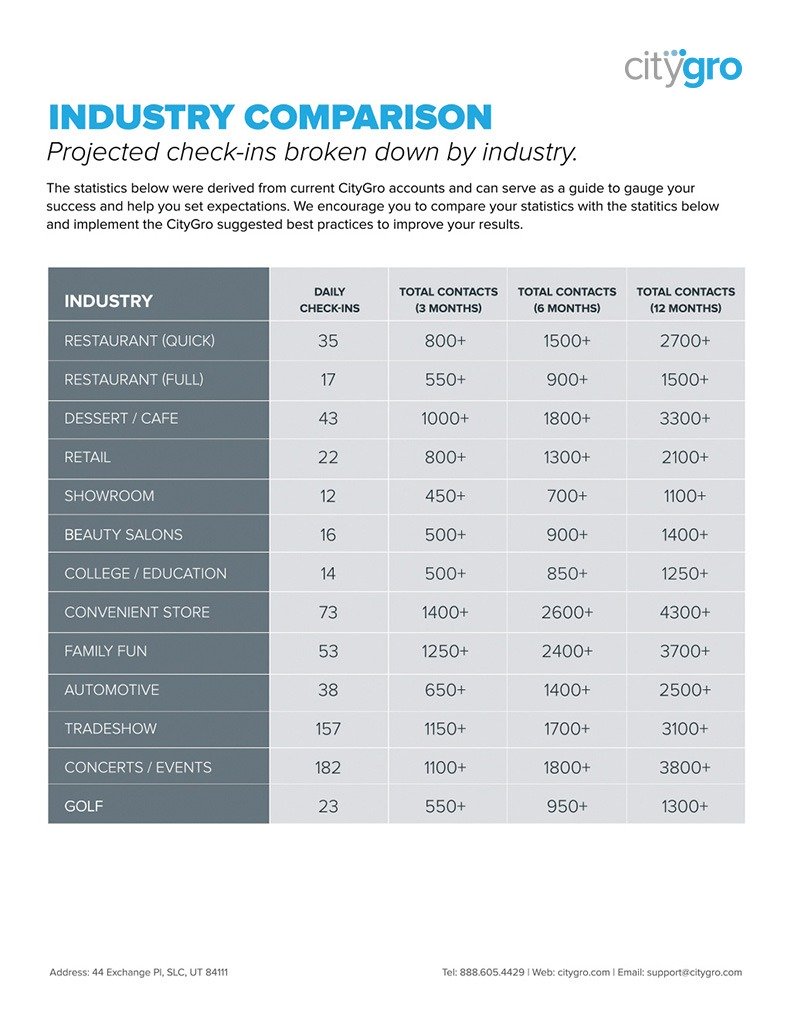CGL: Should You Be Investing In Phone Numbers?
Transcript
Alright, welcome back to CityGro, live I’m John and excited to be here with Steve Russell, one of one of the founders here at CityGro who knows a lot about text message marketing, which happens to be the subject of today. So remember if you have questions, feel free to throw in. Feel free to throw them a into Facebook. We’re going to kind of monitor that. If you don’t, we’ll get, we’ll, we’ll, we’ll kind of watch it later and see what comes from it. So, but we’re talking about texts, a text messaging today. Not so much about the content because we talked a lot about content of messages and regulations. We talked a lot about today on the topic today is what’s the future of text messaging? And this question has been around for a while because you see all of these other apps coming about. Uh, what’s, what’s uh, a lot of messaging and Facebook messenger. How come they haven’t been. I mean, part of what we’ll talk about today is maybe how come they didn’t have taken over texts a text messaging. Why is text messaging been around for so long? It’s really been the same. Why hasn’t it evolved? Let’s start there.
Let’s start there. So, text messaging is, is low tech by definition? It is. It uses the cell carriers GMS service and it’s 160 characters and it has been that way since 1982 on the first text message went out. I said Merry Christmas. Uh, not a lot of those changes. Um, but we’re finally getting to that point. We’ve seen, I mean 2012 was one when Apple introduced the iMessage and that started using data to send messages to apple, the apple devices, but we’re now just starting to be like the cusp, the big change in text messaging. Um, but throughout that whole time, like you mentioned, it’s been the number one feature on phones. It’s dominated, it’s not going anywhere. Although high tech solutions for messaging have come out. Um, we’re, we’re in a, we’re in a funny position where we’re going to see text messaging, take that technology.
So big changes coming forward.
Yep. Absolutely.
So, so why has it been so dominant at any, any thoughts on why if it hasn’t been taken over by something?
Yeah, it’s accessible and, and we were talking about this a little earlier, but every phone comes preinstalled with text message.
You don’t have to go to the APP store to download your messaging APP.
Nope, not at all. It’s just there. It’s tied with your phone number. Phone number is a big identifier for people and people know the other people’s phone numbers and so, you know, now when I get a new phone it just is there. I have everyone’s phone number, I can transfer those ins and now I can text message people and it just works. It’s simple and it works.
It’s also one of the things that probably has made it last so long as it’s, it’s one of the few cross platform messaging. So I mean you can download an app and as long as everyone has that app on the phone, you can message them, your friends that don’t have that APP on their phone. Which uh, I’m, I’m into a few social apps and now I think, oh, I should reach out to my buddy. And I’m like, ah, I can’t. Because he doesn’t have this APP. Everyone has text, text marketing, so accessibility. I think you nailed it there. And then cross platform, we were talking earlier about how uh, Apple has iMessage and iMessage works with, I mean you can text other apps, but all the features only work with iMessage. It’s a text marketing or text messaging. Every phone works with androids context. That iPhone context to Samsung doesn’t matter the device. Yeah, exactly. So that’s what’s, what’s the future of text messaging?
Yeah. So let’s, uh, let’s talk about just the technology piece of it. Um, again, it’s been so, and this stalemate, low tech for so long, I’m android and some of the operating systems for phones are working with carriers to actually introduce a new technology, a RCS,
RCS, been deal.
And that’s. Yeah, that’s a big deal because that enables rich pretty much instead of plain text, everything which takes, that alludes read allows read receipts. So when businesses on a tag so you can see who reads them colors. So texting Verizon, they might respond to the red images and red text boxes and there’s gonna be a lot more control and it’s pretty much going to be a simpler version of an email, but a lot actually a lot more.
I was gonna say is email an example of what this is? Is kind of you remember how all emails used to be just strictly text based emails and now you get images in emails, you get apps and knows you get all kinds of stuff.
Yeah, a little bit except for all these messaging platforms are going to have apps built into them where you can’t really built in an APP. They. An example I use is Venmo, so I iMessages, which I’m an apple user, but a call a year or so ago, they introduced apps inside that message platform and now I used to use Venmo, used Venmo for exchanging money with, with friends and family all the time. I’m biased. Have to open up the VENMO APP, send out, you know, find my friends by the phone number and then send them my Venmo.
How old school.
I know, right?
I don’t have to do that. I think
John just barely found out, but I make the yeah, for the last six months I don’t even use the Venmo app anymore. I go into my iMessage. If I have to text my friend money, $20, I find his name and click the Venmo App and I message and save $20, send and it sends them a text message with the big logo on it. Says Venmo Steve sent you $20 except. And they clicked accept and then I get a response on my text message. This is accepted and ready to start seeing that trend with a lot of, a lot of business.
So can you think of how, uh, how about capability might affect text marketers, people within the realms of like maybe what we do with text marketing of sending out offers or different components of that? How would we use that road?
Yeah, I’m excited to see how business has adapted. Uh, you know, I messaged as a little bit of a head start, androids coming on android messaging, which is artists are RCS, capable, but that that’s up to the carriers haven’t quite rolled that out quite yet. Sprints I think’s gonna be the first one that had to kind of introduced that might be already installed in their protocol, but over the next 12 months businesses will start utilizing that a lot more and the is just become huge. Read receipts and text message marketing. We send out an offer and we just know that if it, if it was delivered right while we’re going to read these seats and let them with text messaging, that’s gonna be really high, but we’re going to know clicks and there’s ways to do that right now, but we’re gonna have a lot more brand ability where we can just show a nice looking offer right there and the message rather than them having to click a link and go to a website to see that every thought, everything everything’s done in house. It’s gonna be quite, quite powerful. And, and, and small businesses or big businesses that like to take advantage of this technology and, and that’s why growing your SMS database is going to be so huge. Like take advantage of that now and while, uh, before it becomes really hard.
And on that note with the why, why to continue in to invest in phone numbers. Um, I was, I was reading an article that talked about the difference between a marketing via social media, like Facebook and marketing. They were talking more about email and texting, not just texting exclusively, but one of the big difference there, and we saw this a lot with the algorithm changes in Instagram and Facebook recently where even just a year ago, you’re, the worth of your Instagram following or Facebook following is different than it is today. And the difference is, is that Facebook owns your connection with the client. So if Facebook decides, man, I don’t want businesses to be shown as much as I want consumers to be shown or, or I want it to be friends, not businesses. All of a sudden they’d cut off your access to the thousands of people that you’ve connected with. Well, if you have phone numbers, you actually owned that connection, uh, to text them. So it’s very unlikely that you’d have a, any dominant carrier say I’m going to cut up your access to consumers because really they don’t know whether you’re texting them regardless. Yeah, absolutely. Absolutely. So, so definitely worth investing in. I’m so excited about some of the stuff coming down through the law, through the world of text marketing, tons of stuff. Uh, so the, I guess the, what’s the key to do right now in preparation for all the time?
Yeah, just, just continued to understand that phone numbers are very valuable. They’ll build lists with, with proper permission, get consent. Um, so that you can start doing that, do continue to do that right now, build those lists and then as the technology evolves, you’re going to just have one, one foot in the door and be able to just take advantage of it right away and not, not, not started your list at that point. Um, so yeah, and along with that, the other thing that, that will be coming out using text messaging, it’s time we text message marketing per se, it’s gonna be more like text messaging, customer service, but for so long customer service has been handled over the phone, right? If I wanna, if I see a business and I needed to call them, pick up the phone and call them text messaging, I just never felt like I could text message to them. That’s changing. And quickly apple is gonna be introducing business business chat is what they’re calling it, which is using SMS. Um, android will have something very similar and this will allow you, when you’re in the woods, when you pull up your maps app and you see a business, they’re no longer is it just me telephone to call them. You can text them or they can hit, enable a text message button. Then you can start having conversations that way. Um, so customer support and, and you know, communicating with customers on a non-marketing level, um, that that’s coming and it’s coming quick. It’s already starting to.
We could do a whole nother segment on two way messaging that we just introduced right here. Go there. We’re seeing a ton of success with where, uh, you know, examples that come to mind. Hospitality. If I’m, if I’m leading my room, checking out, I always have to go to the front desk to check out, handled the key, which is kind of a worthless conversation. So now I can text and Sam, now they could come automatically reply and say anything we can help you with. How was your stay? You can reply back. So it’s no longer just a blast one way.
Yeah, exactly. And it’s funny because some of these, like hospitality hotel chains, there’s some hotel chains that have gotten that APP and allowed you to do that via the APP. Not everyone’s going to download every APP. I don’t want to have every hotel chain on there, but say when I check in, they check into a hotel, I get a message that says, Hey, we’ll hope you enjoy your stay. And then when I’m on my way out, I just say I just checked out. I’d have to download their APP, but I still had that communication. They were whether they the keys on the bed here, the kids there and, and that’s how it’s going to start trending is that you’re going to have those dedicated apps anymore. Some demands will still demand demanding, but a lot of business. It’s going to move over to text message.
We will. I’m going to bring it back for another session because there’s so many. I mean just just off the top of my head, like restaurants sending feedback forms. How was your visit today and learn to respond directly to that message. There’s just so much in the world of two-way messaging. Okay. Well I think for the sake of time we’ll uh, we’ll cut it off there. So thanks so much, Steve, for being with us. Thanks you guys for being with us. Keep in touch for more to come and we’ll see you next time.






 Get this section from Jon. Get this section from Jon. Get this section from Jon. Get this section from Jon. Get this section from Jon. Get this section from Jon. Get this section from Jon. Get this section from Jon. Get this section from Jon.
Get this section from Jon. Get this section from Jon. Get this section from Jon. Get this section from Jon. Get this section from Jon. Get this section from Jon. Get this section from Jon. Get this section from Jon. Get this section from Jon.

